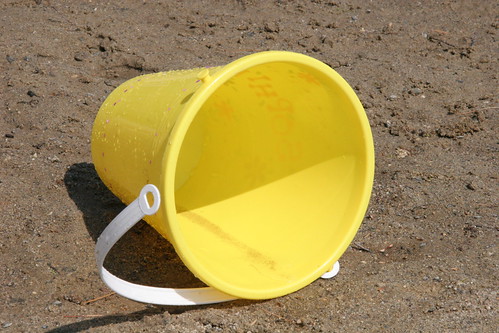
I’ll write about you
This blog is dedicated to several of my published and unpublished essays on all ideas, events, and people that travel through our world.

.jpg)
It’s the second winter day, 2003
And I sit in a dugout left empty
To watch the grass hold on to the field it’ll lose
As a dog tows his owner to a poop spot he chose
And the wintery winds, still warm, make the siding flap
Grows green the grass, and I watch it adapt
It’s held the fort strong, no patches dead
While all around its allies have fled:
The leaves blown off, the birds fly in scuttles,
The sun bows out early, the dirt cries in puddles.
Through their retreat, while scared of Frost’s ploy,
This beautiful day is a gift for the grass to enjoy.
(December 2003)
 You talk of glass ceilings
You talk of glass ceilings
Soon television will be flooded with some of your favorite Christmas classics, such as Miracle on

The Harrisburg Patriot-News Election Special
November 4, 2008
With the election only a few days away, every media source is going to be pounded by poignant opinions, haberdashery, endorsements, and threats. In a change of pace, let’s do a bit of presidential trivia. Can you name the:
1a. 1928 – Pres. Herbert Hoover
2a. 1876, when Pres. Rutherford Hayes lost the popular vote to Samuel J. Tilden, but won the Electoral College. The turnout has stymied since.
3a. Thirteen straight elections, from 1956 until 2004.
4a.
5a. Pres. Grover
6a. Pres. Gerald Ford
7a. Pres. John Adams lost to his political rival, Pres. Thomas Jefferson
8a. The Republicans have elected 19 Presidents, while the Democrats have fielded 13.
9a. Pres. Zach Taylor, a Whig, was elected in 1848 but died just 16 months into office.
10a. Future Pres. Andrew Jackson lost to Pres. John Q. Adams.
11a. Sixteen.
12a. True – but Sen. Obama was a mere 11 years old when his running mate, Sen. Joe Biden was first elected to the Senate.
13a. Twelve Presidents have at one time or another identified themselves as Episcopalian (Washington, Jefferson, Madison, Monroe, W. Harrison, Tyler, Taylor, Pierce, Arthur, F. Roosevelt, Ford, G.H.W. Bush). If Sen. McCain is elected, he would become the thirteenth.
14a. Harvard had a hand in educating six presidents (both
15a. Sen. McCain has seven children (Sydney, Doug, Andy, Meghan, Jack, James, Bridget)
16a. Sen. Obama prefers five-card stud, while Sen. McCain enjoys craps.
17a. Five (Truman, Ford, Reagan, G.H.W. Bush, Clinton; both McCain and Obama are left-handed, making ½ of the most recent presidents left-handed even though only 1 in 10 Americans are a “southpaw”)
18a. False. Only fourteen (Washington, Monroe, Jackson, Polk, Buchanan, A. Johnson, Garfield, McKinley, both Roosevelts, Taft, Harding, Truman, and Ford) of the 43 were Freemasons.
19a. 1908. In 2008, Pres. Bush was paid $400,000. In 1908, Pres. Theodore Roosevelt, made $75,000, which would have been $1.7 million in today’s figures.
20a. Thirty-one presidents have had a military background. All of them, sans Pres. Buchanan, served as an officer. Sen. McCain would become the thirty-second.
 The Harrisburg Patriot-News
The Harrisburg Patriot-News
Published in the Allentown Morning Call and the Lehighton Times News, June 2008
One of the most peculiar things about teaching is when students ask, “What is something good I can do with my life?”

Like a credit card bill from hell, first quarter fundraising reports showed an excessive amount of dollars collected for the 2008 presidential candidates. Senator Hillary Clinton leads the soon-to-be spending spree, having raised $36 million through the first three months of her campaign, quadrupling the record amount collected by Al Gore in 1999. Even John Edwards – the third place finisher in the Democratic primary – has eclipsed Gore’s numbers, raising a cool $13 million for his campaign;
Neither does more money mean more debate; it eliminates it. Today we hardly elect the candidate with the best ideas. We elect the candidate who gets our attention, and that usually comes at a price and with many purse strings. According to OpenSecrets.org, we elect the candidate with the biggest checkbook 97% of the time. This causes many deserving candidates to drop out of the race early simply because they cannot keep up with the fundraising. More money means less candidates and less debate.
Money has not enhanced our democracy, it has squandered it. The only way to solve this is to slowly take it back from campaign donors and pork-barrel spending projects and for every voter to look at their politician like they would their teenager with our national credit card. Call it "American Excess," because that is what money has done to our political system. If we neglect to watch it, recover it, and reinvent it, the great democratic system that was fine-tuned in this country and replicated around the world will not be every where we want it to be.

